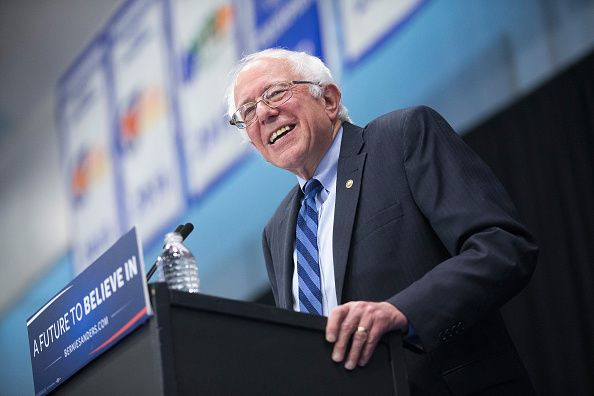Guam Democratic Caucuses: Hillary Clinton Tops Bernie Sanders Ahead Of West Virginia Primary

UPDATE: 4:30 p.m. EDT — U.S. Sen. Bernie Sanders on Saturday cut into Hillary Clinton’s Democratic delegate lead, picking up 49 of the 67 delegates awarded at Washington state’s Democratic state convention while Clinton won the Guam caucus.
Sanders won Washington's March 26 caucus, 60 percent to 40 percent, picking up 25 of the 34 delegates awarded as a result of that vote. Clinton picked up 18 Washington state delegates Saturday, adding to the nine she won on caucus day.
Saturday’s action brings Clinton’s pledged delegate total to 1,706 to Sanders’ 1,414, the Associated Press reported. Clinton also has 523 superdelegates to 39 for Sanders.
Original story:
Hillary Clinton edged closer to the Democratic U.S. presidential nomination Saturday, winning the Guam caucuses.
The island in the Pacific Ocean has seven delegates to contribute at July’s Democratic National Convention in Philadelphia. The former U.S. secretary of state entered the contest Saturday with 2,205 of the 2,382 delegates she needs to secure the nomination over rival U.S. Sen. Bernie Sanders of Vermont, who had 1,401 delegates.
The Guam Democratic Party declared Clinton the winner a few hours after the polls closed, ABC News reported. Neither candidate campaigned on the island, although they did spend several thousand dollars on advertising there.
The win gives Clinton a bit of a psychological boost heading into the West Virginia primary election Tuesday in the wake of her upset loss to Sanders in Indiana. He had been considered the underdog but mounted an aggressive advertising campaign and visited with factory workers while she delegated the campaigning in the Hoosier State to her husband and daughter.
“I know that the Clinton campaign thinks this campaign is over. They’re wrong,” Sanders said in a phone interview with the Associated Press from New Albany, Indiana. “Maybe it’s over for the insiders and the party establishment, but the voters today in Indiana had a different idea.”
Heading into West Virginia, Sanders appeared to have the edge. The latest MetroNews West Virginia poll, taken in February, gives him a 4-point edge over Clinton, 47 percent to 43 percent, while a Public Policy Polling survey released this week gave Sanders an 8-point lead, 45 percent to 37 percent, with nearly 20 percent of Democratic voters still undecided.
Sanders has been able to take advantage of remarks Clinton made early in the campaign about shutting down the coal industry because of its effects on the environment. The West Virginia economy is heavily dependent on coal mining.
Clinton campaigned hard in the state this week, admitting her “chances are pretty difficult, to be honest.” Her position contrasts sharply with her 2008 win over Barack Obama and that of her husband, former President Bill Clinton, who handily won the state in both the 1992 and 1996 primary seasons.
© Copyright IBTimes 2024. All rights reserved.






















